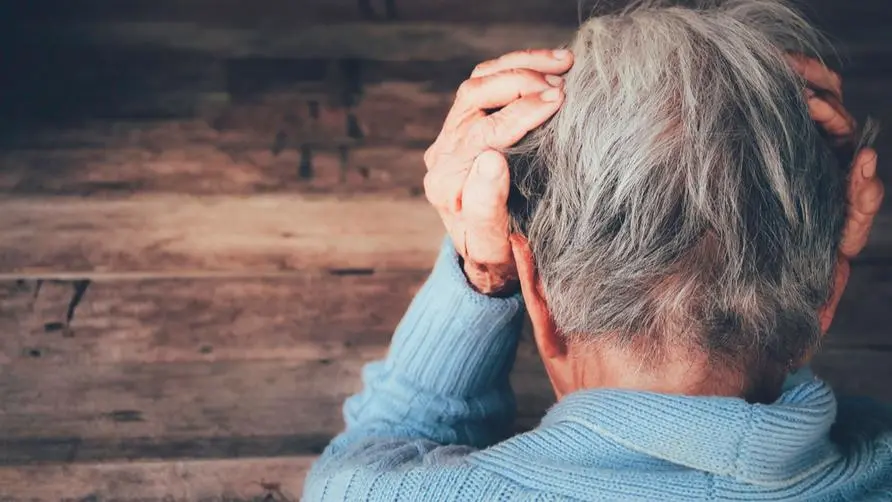Do people become more "sentimental" as they get older? "Nature" research: The elderly are susceptible to "negative emotions"

Are older people more susceptible to negative emotions? Study: 6 brain areas are more active than young people
As the world enters an aging society, how to “age healthily” is one of the issues that has attracted much attention. A recent study published in “Nature Aging”, a subsidiary publication of the authoritative journal “Nature”, shows that under the influence of negative socio-emotional events (such as watching videos of others suffering), the regulation and recovery of the brain’s “resting state network” will be affected by elderly people. changes happened.
The study attempts to explore whether the brain activity of older adults is slower than that of younger adults when the neural activity in relevant brain areas returns to normal levels after a social-emotional event. This is referred to as “brain recovery ability.” The experiment uses positive and negative videos, with high and low emotional tension respectively. After the video ends, the brain activity in the resting state is recorded to see whether the brain can quickly return to its normal state.
The results showed that the brain activity of the elderly after high-emotional tension films was indeed more active in specific brain areas than those after low-emotional tension films, such as the medial prefrontal cortex, posterior cingulate cortex, left anterior insula, and right frontal insula. There was more brain activity in the inferior gyrus, temporoparietal lobe, and right hippocampal gyrus; young people had more brain activity in the precentral motor area and the left amygdala.
Among them, “functional connection strength” is positively correlated with “negative rumination thinking”, that is, the elderly have higher levels of negative rumination thinking, and the functional connections between the amygdala and resting-state brain areas will be higher, which may be related to thinking. There is a correlation between lingering on negative emotional events. The study believes this will help to understand empathy-related functions in older adults and possible reasons for poor emotional resilience under social stress.
The brain’s resting network is more sensitive than young people. Older people are prone to anxiety, depression, and rumination.
Why is this research important? What are the key points worth discussing? Professor Xu Ciyu, associate professor at the Institute of Mind, Consciousness and Brain Science at Taipei Medical University, pointed out that research has found that the amygdala and important resting-state brain regions, including the posterior cingulate cortex and medial prefrontal lobe, have relatively high functional connection strength in the elderly. The strength of this functional connection is positively correlated with negative “rumination thinking”, which may be related to lingering on negative emotional events in thinking.
Professor Zhang Yunxuan, associate professor at the Institute of Gerontology, National Cheng Kung University School of Medicine, also said that past studies on aging have found that the physiology, physical strength, cognitive functions and brain structure networks of the elderly seem to be affected by aging. This study focuses specifically on the correlation of brain resting-state networks in response to negative social events in older adults.
Professor Zhang Yunxuan emphasized that in clinical experience and community services, it is often seen that the elderly have rumination thinking about past negative emotional events, and this is often related to the mental health of the elderly (such as senile depression). The results of this study support that the performance of the social cognitive dimension of the elderly is different from the recovery characteristics of young people after facing negative emotional events, and the performance of the brain’s default network is different.
However, there are still many unanswered questions about how different brain circuits and networks are integrated and represented through behavioral representations, and how they are related to aging. Professor Xu Ciyu said, can this study actually reflect the brain recovery ability of the elderly in social emotions? There are still many parts that have yet to be clarified. In real life, the elderly usually have richer life experiences than young people, and naturally their social and emotional reactions are different from those of young people. Therefore, there are slight differences in brain activity between the elderly and young people, which is normal.
How can the elderly avoid worrying situations? Experts teach 5 tricks to regulate your emotions
Professor Chang Yu-ling from the Department of Psychology and Research Institute of National Taiwan University said that past research often only focused on the “present” impact of watching negative videos on the elderly. The most important finding of this study was the observation that people with higher anxiety and higher rumination thought The connection between the brain’s “Default Mode Network” (DMN) and the limbic system continues to be activated even for a short period of time (90 seconds) after watching the video.
“From a scientific perspective, this result contributes to the academic understanding of the neural mechanisms of emotional inertia in generally healthy elderly people, and opens up the possibility of further application in the early detection of neurodegenerative populations in the future.”
This study found from a bottom-up perspective that the brains of older adults with high anxiety or rumination traits may take longer to calm down to their normal state after receiving negative information. On the one hand, if they receive neutral messages, older people subjectively report more positive feelings than young people.
Therefore, through the concept of “seeking good luck and avoiding evil”, for example, reduce watching negative videos or information on social media, and be more exposed to positive or even neutral messages (watching inspirational and happy videos), daily activities (such as gardening, visiting Exhibitions) and social participation such as volunteering, as well as strengthening top-down emotion regulation strategies through methods such as mindfulness exercises, can help maintain a healthy brain and create a happy life.
source:
Further reading:





